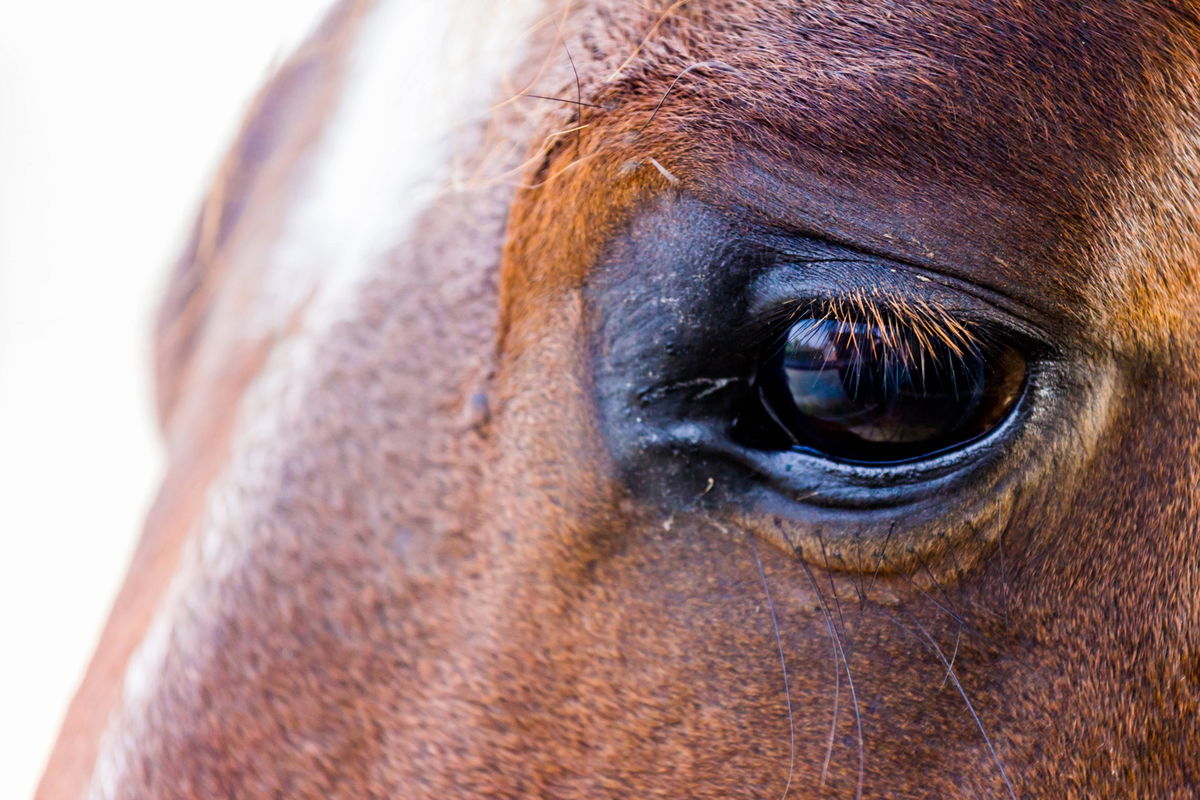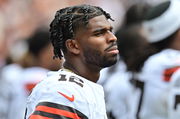

In around two days the Kentucky Derby begins at Churchill Downs Racetrack in Louisville. Horse racing lovers and bettors and equestrians from around the country will flock to the racetrack to see some of the best thoroughbreds fight it out for the glory. However, glory is a human-made abstract designed to serve mortal beings. Do those horses care for materialistic gains such as trophies and prizes? If not, then what exactly are they gaining out of it if not “fear and pain”?
Watch What’s Trending Now!
Horses at a very young age, normally 3 years old, are prepared to run in some of the most prestigious events in the country and possibly win the American Triple Crown. None more prestigious than Kentucky Derby. So when a foal is taken and bred and trained for racing purposes, they may be some of the finest horses to humans, and probably taken care of. But their lives are mired in misery, which is also often ignored.
ADVERTISEMENT
Horses and humans do not think and function in the same manner
Dr. Stephen Peters told The Guardian, “The idea that horses love the event they compete in is something we’ve created. It’s a myth more for us than the horse”. Dr. Peters is a neuroscientist who has worked closely with humans and horses. He also co-authored a book with trainer Martin Black named ‘Evidence Based Horsemanship’. He suggests that horses don’t think like us and are hence more “primitive and instinctual”. Therefore, they don’t enjoy these events as humans do.

ADVERTISEMENT
However, a narrative is sold every year to draw in more public for these events. In his book, Dr. Peters constantly raises the question from a horse’s point of view, “Am I safe?” which of course, isn’t true for all horses, as several of them every year end up in the kill pen.
ADVERTISEMENT
READ MORE – WATCH: 80-1 Outsider Rich Strike Pulls off Historic Upset at Kentucky Derby
Top Stories
NFL Makes Final Punishment Decision on Shedeur Sanders Incident in Week 17

Jerry Jones Finally Acknowledges the Dak Prescott Gamble Hasn’t Paid Off; Confirms Painful Changes Ahead for Cowboys

Chiefs Coach Abruptly Leaves Andy Reid’s Staff Amid Titans’ Rumored Interest in Matt Nagy

“I’d Be Dead”: NASCAR Legend Credits Kevin Harvick for Saving His Life

Two-Time Venezuelan UFC Champion Clears Stance on Trump’s Takeover and Maduro’s Capture

Kyle Whittingham Cuts Ties With Wink Martindale & Five Michigan Coaches in Major Shake-Up

Rich Strike, the winning colt of the 2022 Kentucky Derby, exhibited some strange behavior after his race was over last year. Martin Black explained that the colt felt the need to fight after the race, as an outsider was struggling to manage its semblance.
ADVERTISEMENT
An unfair punishment at the Kentucky Derby
Rich Strike “didn’t know he had won” the Kentucky Derby last year, said Black. Thus reinstating the fact that Dr. Peters had said, that a horse’s brain is “much more a motor and sensory organ than it is a thinking one”. Black believed that Rich Strike had a “chemical reaction” brought on by the adrenaline and cortisol of finishing a high-powered race. The behavior of the horse wasn’t anything illogical. But the treatment it received was.

Imago
May 7, 2016 – Louisville, Ky, US – Mario Gutierrez sat up on Nyquist after winning the 142nd running of the Kentucky Derby at Churchill Downs in Louisville, Ky, on May 7, 2016. Exaggerator with Kent Desormeaux up left, placed second. 160507DerbyMain – ZUMAl61_
The outrider struck the colt repeatedly until it calmed down. In another moment in the Derby, Rich Strike was also punched in the face for attacking another pony. Trainers had failed to understand the horse’s predicament and as a result, the horse had to suffer harsh punishment. While humans go about their routine doing the same, it only brings personal glory to them. Whereas, all that the horse is left with, is pain, anguish, fear, exhaustion, and panic. While the solution hasn’t been to put an end to these events, it is worth looking at these mega-popular events from the lens of the animals for once.
ADVERTISEMENT
Watch This Story: Get Ready to Celebrate the Kentucky Derby in Style at OB Event Center on May 6
ADVERTISEMENT
ADVERTISEMENT
ADVERTISEMENT

